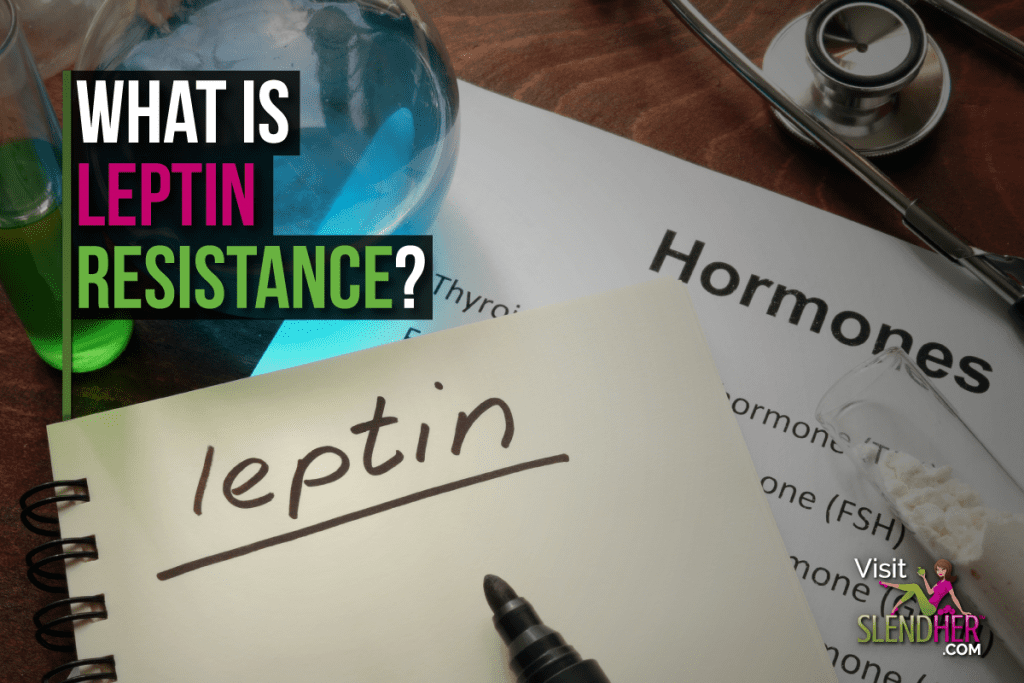 Many of us know that when it comes to weight gain, obesity, and diabetes certain factors come into play such as insulin, calories and the apparent ‘willpower’. However, there is another word to be aware of when thinking about fat gain, and that’s leptin.
Many of us know that when it comes to weight gain, obesity, and diabetes certain factors come into play such as insulin, calories and the apparent ‘willpower’. However, there is another word to be aware of when thinking about fat gain, and that’s leptin.
What is Leptin?

Leptin is a hormone with a key role in the body’s function of energy balance. The level of leptin in your body is a key factor in regulating your appetite, body fat, and metabolism. You could call it the master hormone as it is so important for controlling hunger and feelings of satiety. It is also referred to as the satiety hormone or the starvation hormone.
Leptin is secreted by adipose (fat) tissue, so the more overweight a person is, generally, the higher the person’s leptin levels will be. Leptin sends signals to the brain, particularly to an area called the hypothalamus, and tells your brain that you don’t need to eat anymore as you have enough fat stored in the body. Leptin’s focus is on controlling energy expenditure long term, rather than from meal to meal. The primary role here is to keep humans from starving or overeating, but over time something has broken in the link with preventing some people from overeating.
Leptin and its receptors have been identified as key regulators of body weight and energy homeostasis. A decrease in tissue sensitivity to leptin leads to the development of obesity and metabolic disorders, such as insulin resistance and dyslipidemia. – PubMed
What is Leptin Resistance?

Sometimes the body can become unresponsive to leptin in the bloodstream and when this happens a condition called leptin resistance may occur. Leptin resistance happens when the body doesn’t respond to changes in the levels of the leptin hormone. This can contribute to fat gain, obesity, and diabetes.
When the brain becomes unresponsive to high leptin levels, the body mistakenly experiences hunger, even when the body has enough fat stored for energy. Combined with this disruption in the signals to the brain, leptin resistance reduces the metabolic rate affecting metabolism. This makes losing body fat and maintaining a healthy body very difficult.
When someone has high insulin levels, they will often have leptin resistance, which means high leptin levels can be tied to high blood pressure, obesity, heart disease, stroke and blood sugar related issues. If you are struggling with losing body fat, improving health or just seem to “lack willpower” and no matter what you do you seem to gain weight then it might be of importance to get a full health check of the body to check on all the hormones.
How Do You Reverse Leptin Resistance?
One of the best ways to help reverse leptin resistance is to focus on healthy lifestyle changes. Following a healthy lifestyle can be an effective strategy to help bring leptin back to a healthy range. It has been shown that the modern lifestyle of stress, lack of or too much exercise, lack of sleep and high consumption of processed foods are leading to leptin resistance.

Here are a few tips to might help improve leptin levels:
- Get plenty of rest and sleep – Focus on doing less on that to-do list, go to bed early, and say no more often
- Get outdoors – Being outside in nature can do wonders for the body, both in mind and body. Go for a walk, run or bike ride top get fresh air, uplift your mood and move the body.
- Move the body with love – Focus on moving the body in a loving way rather than punishing it with exercise. There is no need to workout with high intensity five times a week (or ever!!), instead nourish your body with movement that you love.
- Eat mindfully – Choose food that is nutritious, you enjoy to eat and makes your body feel good. With every bite be mindful in what you are eating and how satisfied you feel after the meal. Do not leave the table hungry or feeling stuffed.
- Reduce sugar – Eat little to no processed sugars. Instead focus on fresh fruits and vegetables.

Leave a Reply